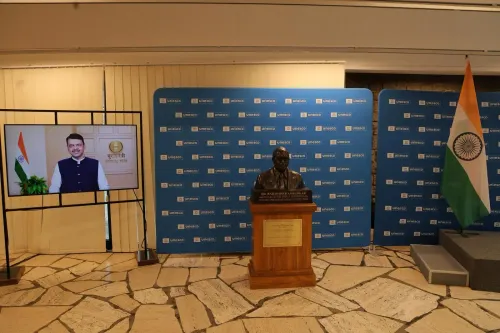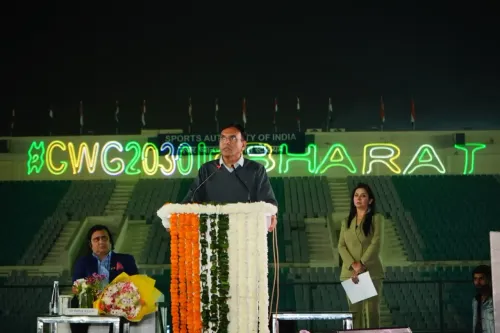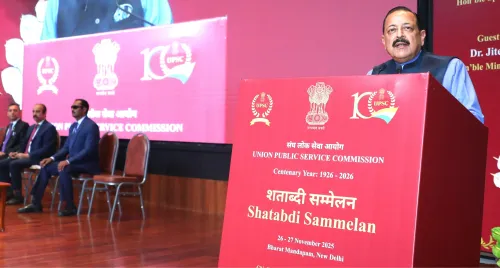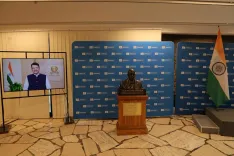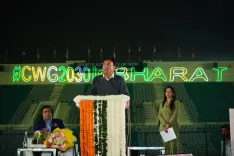Does the Indian Constitution Reflect the Essence of Sanatan Culture?
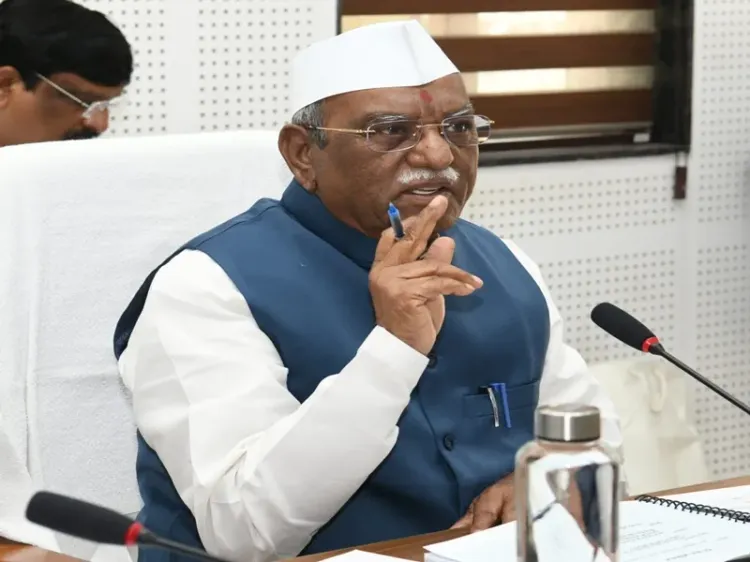
Synopsis
Key Takeaways
- Indian Constitution reflects civilizational values.
- Honors heroes of Sanatan culture.
- Education and youth are key for national progress.
- Freedom of expression should not harm others.
- Constitution is a living document evolving with society.
Jaipur, Nov 26 (NationPress) Rajasthan Governor Haribhau Bagde stated on Wednesday that the Indian Constitution embodies the civilizational ethos of the country and pays tribute to the icons of Sanatan culture through the illustrations found in its original text.
His comments came during Constitution Day festivities at Maharishi Dayanand Saraswati University (MDSU), where he also toured the Constitution Garden.
At the event, the university's publication Triveni, showcasing recent activities, was unveiled.
In his speech, the Governor remarked that the Constitution serves as “the voice of the Indian populace”, with its execution signifying a commitment to its ideals. Reflecting on the evolution of the document, Governor Bagde asserted that it is deeply rooted in the principles of Sanatan culture.
He emphasized that the original manuscript features images of eminent figures who defended the nation's cultural legacy, a source of pride for every citizen.
Furthermore, Governor Bagde articulated that the Constitution's assurance of freedom of expression should not be exploited to demean any individual.
The Rajasthan Governor observed that India is progressing steadily, fueled by contributions from all sectors, steering the nation towards its goal of becoming a developed economy. He highlighted that the vigor and creativity of the youth will further expedite this progress.
He underscored the importance of education merging knowledge with values, as enhancing intellectual capacity stimulates research, ultimately benefiting national growth.
Prof. Narayan Lal Gupta, National President of the All India National Educational Federation and keynote speaker at the event, acknowledged that the members of the Constituent Assembly lived lives characterized by idealism, dedication, and inclusivity.
He affirmed that the Constitution has demonstrated its capability to provide stable governance through significant social and economic transformations, continuing to guide the world with its vision.
Adopted on November 26, 1949, the Indian Constitution is one of the most comprehensive foundational documents globally, outlining institutional frameworks, fundamental rights, directive principles, and federal provisions that harmonize diversity with unity.
Often referred to as a living document, it has adapted through amendments and landmark judicial interpretations while maintaining its core dedication to justice, liberty, equality, and fraternity. Its drafting, led by Dr. B.R. Ambedkar and shaped by extensive debates, mirrored the aspirations of a newly independent nation striving for continuity with its civilizational heritage and alignment with contemporary democratic ideals.

